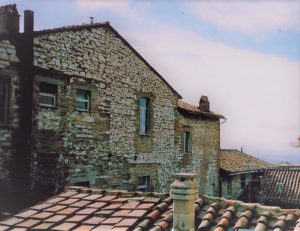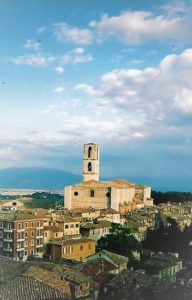Ich hört’ ein Bächlein rauschen
wohl aus dem Felsenquell,
hinab zum Tale rauschen
so frisch und wunderhell.
Ich weiss nicht, wie mir wurde,
nicht, wer den Rat mir gab,
ich musste auch hinunter
mit meinem Wanderstab. . .
Ist das denn meine Strasse?
O Bächlein, sprich, wohin?
Du hast mit deinem Rauschen
mir ganz berauscht den Sinn. . .
Poem by Wilhalm Müller
I heard a little brook murmuring
right from its rocky source,
down to the valley, it rustles
so fresh and wondrously clear.
I knew not what came over me,
nor who gave me the guidance.
Still I must go down there
with my wanderer’s staff. . .
Is this then my path?
O little brook, speak! Where to?
You have, with your murmur,
totally intoxicated my soul. . .
“Wohin?”: Fischer-Dieskau, baritone;
Gerald Moore, piano
Studying operatic repertoire is the main focus of most upcoming singers in New York. Art songs, which require deeper understanding of the languages and subtle stage presence, are largely ignored. As must as I enjoy being a one-person orchestra at the piano, I truly miss playing works written for voices and piano. So, when a young baritone asked to work on some songs together, I gladly agreed.
Sitting at my piano playing “Am Feierabend” from Die schöne Müllerin I was reminded of my first encounter with this song cycle by Schubert: Spring of 1984, weeks into my first semester at Kent State University, a tenor asked me to play for his graduate recital. Included in the program was the first half of the cycle.
I grew up knowing the tunes and translations of several Schubert songs because of dad’s work. It was always my dream to learn these songs in their original forms. Unfortunately, my previous teachers were very against the idea of their students “accompanying” anyone in any ways and forms. My new teacher, on the other hand, was teaching a course on accompanying and encouraging us to play with singers and instrumentalists. I worked as hard and as fast as I could to prepare for the performance. However, inexperienced and limited by time, I didn’t fully understand the pieces.
Since Die schöne Müllerin is one of the most popular song cycles, I have had the opportunities to revisit the entire set multiple times. Each time, I would find more nuances that I did not notice before. And, it never failed to move me.
Throughout the cycle, the singer, in the character of a young wanderer, narrates his experiences and feelings. The piano keeps him company through the journey. Sometimes, it describes the image and sounds in the surroundings; sometimes, it creates the moods, supporting the narrations.
Almost as soon as the young man embarked on his journey, he came upon a brook. Its murmuring sound drew him near. Unsure of his direction, he asked: “Wohin?” Unable to resist the incantation of the brook, he followed its path. It became his confidant and, eventually, the cradle of his body and soul.
My entire life, I always feel that there’s an irresistible power carrying me on my journey. I don’t know where the journey ends. But, moment by moment, I take the next step as life propels me. I knew at a young age that music and words would be my entire world. I didn’t always see my path forward. Yet, at certain moments, gates opened, and scenery became clear.
Fatalism has its roots in Chinese culture. Dad used to say that every child came with his/her book already written. This, on the one hand, allows one to be free of worries. It, on the other hand, can make one live passively. I will always follow the call of life. I will also make good use of my time in this journey.


